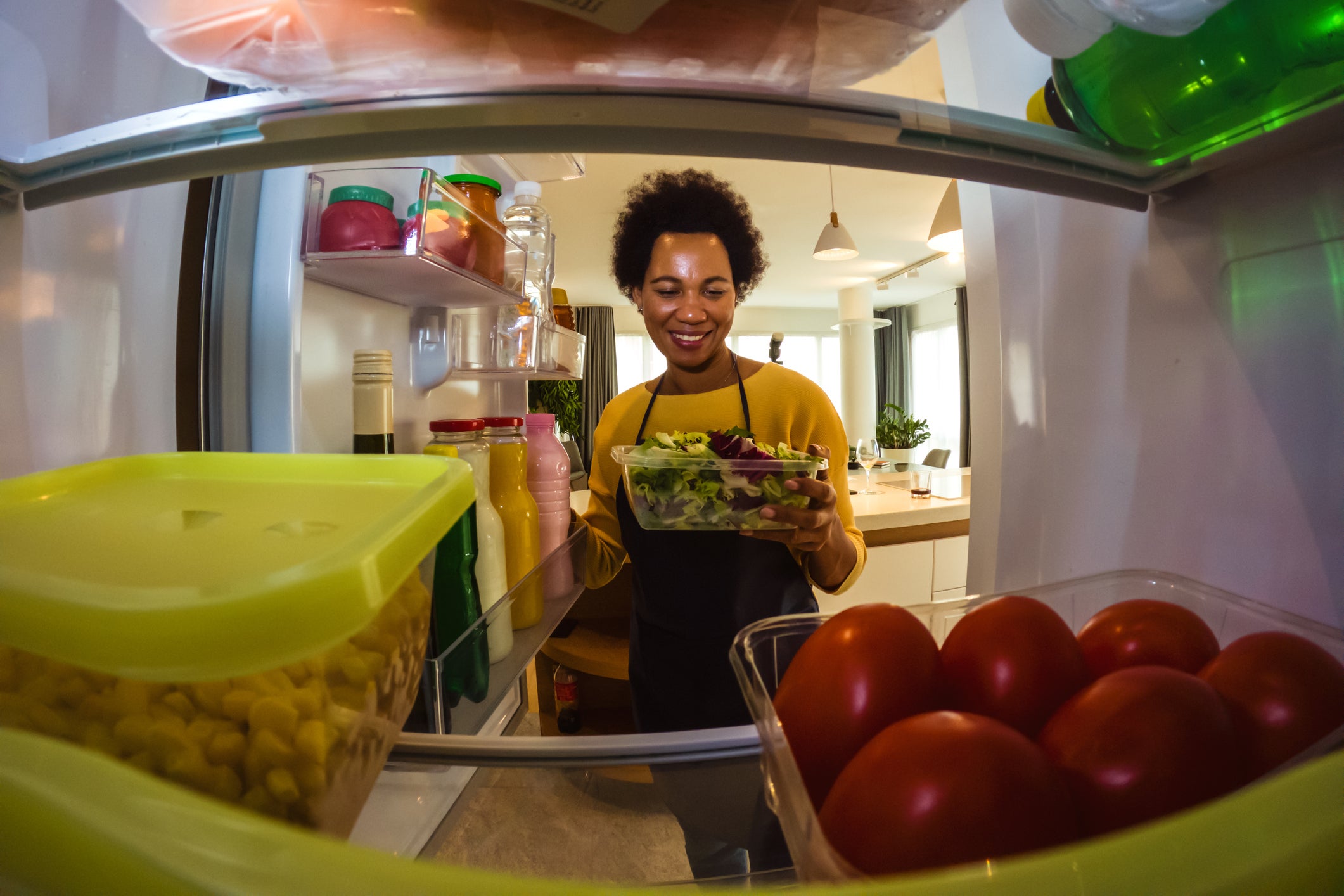
April 11-17 is Black Maternal Health Week. Be informed. Be your best advocate. – Team Lifestyle
When Georgie-Ann Sutton gave birth to her first child over a decade ago, what she needed most was a safe space to recover. Sutton, who returned to school just one month after giving birth, was supported with daily meals and snacks, all prepared by the loving hands of her Jamaican grandmother.
Her experience is the type of postpartum care that Katia Powell, founder of Black Girls Nutrition, birth doula, and holistic nutrition practitioner, refers to as nearly ideal–especially in the wake of startling Black maternal health statistics.
According to the Centers for Disease Control (CDC), the United States has one of the highest mortality rates among industrialized nations in the world, and Black women are far more likely to endure mental and physical health complications during the postpartum period. Researchers, activists, scholars, birth workers, community advocates, legislators, journalists, and birthing people and their families have worked tirelessly to change that.
Nonetheless, Tanzye Hill, founder of Nashville-based BirthManifesta, doula educator, and midwifery apprentice, wishes that more nuanced and practical solutions could be introduced into the homes of Black families.
“While the continuous stories of birthing trauma are necessary to bring attention to dire issues, it’s equally as important to overshare stories of how families and communities are showing up to save Black birthing people every day,” Hill says.
One way birthing people are supported during the postpartum period is through food. Nationwide, many families are focusing part of their childbirth planning on postpartum meal prep.
“Food is more than food for us, right? It is bonding. It is love. It is how we show up for our family members and loved ones,” says Powell.
Sustaining Black mothers postpartum is deeply rooted in Black and African diasporic culture. Pulling from ancient food traditions, an existing blueprint that traveled from West Africa and was upheld throughout generations of women like the Granny midwives is helping to create better futures and Black maternal health outcomes.

Nutrition at the core of nourishing mothers
There are several key reasons why nutrition is significant for breastfeeding and formula-feeding mothers during the postpartum period. They include physical recovery and mental health support.
Additionally, according to Danielle Crumble Smith, RDN LD, a registered dietician nutritionist, breastfeeding mothers typically need about 400-500 extra calories per day (including adequate calcium, iron, vitamin D, and omega-3 fatty acids) compared to their pre-pregnancy intake. Staying hydrated is also crucial, as milk production can dehydrate the body. Postpartum mothers are encouraged to aim for at least eight to 12 cups of fluids daily.
“The best way [for mothers] to recuperate is through fluids. I highly suggest coconut water because it’s super hydrating,” says Melan-Smith Francis, DPN, CNM, FNPC, and practitioner at Roots Collaborative Care.
Nielah Burnett, owner of Nashville-based InnerG Juice and Yoga and mother of three, says, “Whole fruits and vegetables are a wonderful source of foods that provide an optimal blend of nutrition during the postpartum period to restore, recover, and give to the little ones we are caring for.”
Juicing and making smoothies aren’t meant to be replacement meals, though. Instead, they should be consumed to enhance other nutrient-dense foods.
“Calcium and vitamin D are vital for bone health, while foods high in folic acid continue to support healing and breastfeeding. Prepping high-protein snacks like Greek yogurt parfaits, fruits, nuts, and healthy snack bags can be a lifesaver for a mom who needs to fuel but struggles to find time,” notes Crumble Smith.
She continues, “Aiming for meals that combine protein, complex carbs, and healthy fats is key postpartum. These components help with recovery, appetite, blood sugar regulation, and steady energy levels.”
Black women generally have a higher risk of anemia, so including iron-rich foods postpartum is also essential.
“Lean meats, beans and lentils, spinach, and iron-fortified cereals can help replenish iron stores, especially after childbirth. For plant-based iron sources (non-heme), pair with a vitamin C-rich food source like beans, fortified cereals, berries, spinach, and tomatoes to increase absorption,” adds Crumble Smith.
The correlation between food prep and mental health
Although very few are diagnosed or connected with mental health services, according to the National Library of Medicine, up to 44 percent of Black women experience postpartum depressive symptoms (PDS). One of the biggest stressors postpartum moms can have during those first few weeks to months is trying to figure out what they are going to feed themselves and even the rest of their family if there are older kids.
“The lack of sleep while taking care of a newborn does not mentally allow for this to be done successfully without support,” says Johene Filemon, MS, RDN, LD, CLT, nutrition consultant, mother of five, and founder of Wonderfully Nutritious Solutions, LLC.
This is also true of mothers like Morgan Chance, an Oregon-based entrepreneur, who experienced the need for additional help after having a miscarriage.
“After hours of pain, I delivered a beautiful angel baby. However, due to the tremendous amount of blood that was lost, I needed assistance during the healing process. After being discharged, both my mother and mother-in-law [who traveled a long distance to be by my side] made sure I ate a diet full of iron and made with plenty of love,” she says. “They worked in shifts! My favorite was liver covered in onions and gravy. My mom also juiced beets and oranges for me. They nurtured my heart and made sure I was pumped with good nutrition. This, in turn, helped me to focus on my mental health – because, at that time, I didn’t know what to feel,” explains Chance.
Addressing food insecurity
Both Filemon and Chance were fortunate to have familial postpartum support, but not all birthing people have equitable access to this type of care.
“Many of my clients must return to work so fast, and that often hinders their ability to properly plan meals. However, as a caregiver, I am careful to encourage realistic suggestions within reasonable time and financial capabilities, all without shaming,” says Hill.
Individuals and organizations around the country are working hard to address socioeconomic disparities and food insecurity by providing programs for families who otherwise would not be able to afford postpartum meal support. For instance, The Bee Collective, partners with a local farm to provide specialized meal delivery for hard-to-reach birthing and postpartum families in the Tri-county region of South Carolina.
“It starts with your own family, but it is also the responsibility of the community,” explains Paige Malliah, doula and mother of three, who is doing her part by teaming up with local chefs and Black-owned catering companies to support postpartum moms.
Filemon also says that a more cost-effective option includes “preparing nutrient-dense meals during your last trimester and freezing those meals so you can just reheat them. You may need to get a deep freezer for this, but it can be worth the peace of mind knowing you have nutrient-dense meals to eat.”

Ancestral healing foods that link recovery to culture
“Postpartum food preparation is a big part of my culture as a Haitian-American. Growing up, I’ve always heard of specific foods that my mom would recommend to others during their postpartum journeys, the same foods that were recommended to her by her mother and elders. That knowledge and what I now know as a registered dietitian nutritionist prepared me for each of my postpartum journeys,” says Filemon, whose mother cooked postpartum meals for all five of her births.
“She would feed me fresh papaya juice in the morning, which is rich in folate, vitamins A and C, and contains many antioxidants. For lunch and dinner, it would be a plate of Haitian rice and various beans paired with Legume, which is a mix of stewed vegetables, consisting amongst many others, of eggplant, tomatoes, bok choy, carrots, cabbage, bell peppers, onions, garlic, parsley and many other herbs and spices rich in anti-inflammatory and antioxidant properties that support my body in the postpartum healing process,” she adds.
As for Powell, she teaches other birth workers about the power of culturally relevant food preparation. “I’m consciously teaching others about culture, nutrition, and how they intersect. It’s not just about eating kale. Kale is wonderful, but there are also collard greens,” says Powell. “At Black Girls Nutrition, we have a Black woman’s grocery guide that celebrates and provides recommendations of diasporic foods. In the guide, we focus on African American, Trinidadian, Jamaican, Haitian, Nigerian, and Puerto Rican meals, just to name a few. There’s even a compare and contrast feature that allows users to look at a vegetable like kale alongside vegetables from West African countries that are also nutrient-dense options.”
Teamwork makes the dream work
No two situations are ever the same. A support system might not be family or close friends. For some, it might look like hiring help, joining online communities, or downloading apps tailored to meal preparation during the postpartum period. Crumble Smith recommends apps like Nourish, Paprika, Mealime, Yummly, and Meal Train.
“When we say, ‘It takes a village,’ it does! If you can get your friends and family to have a meal train going for the first couple of weeks postpartum, that will be quite helpful during this time. Other options are having pre-made meals delivered from a meal service if you are financially able to do so,” adds Filemon.
Collective care, reaffirming the culture through nutrition and food, can make a huge difference in Black maternal health outcomes.
“A lot of times we as Black women…we want to do it all, but we cannot do it all,” emphasizes Powell. “It’s also about using our foodways to uplift Black mothers. We are making small adjustments, leading with love, and hopefully, that will result in [Black mothers and their families] having a brighter and joyful future.”